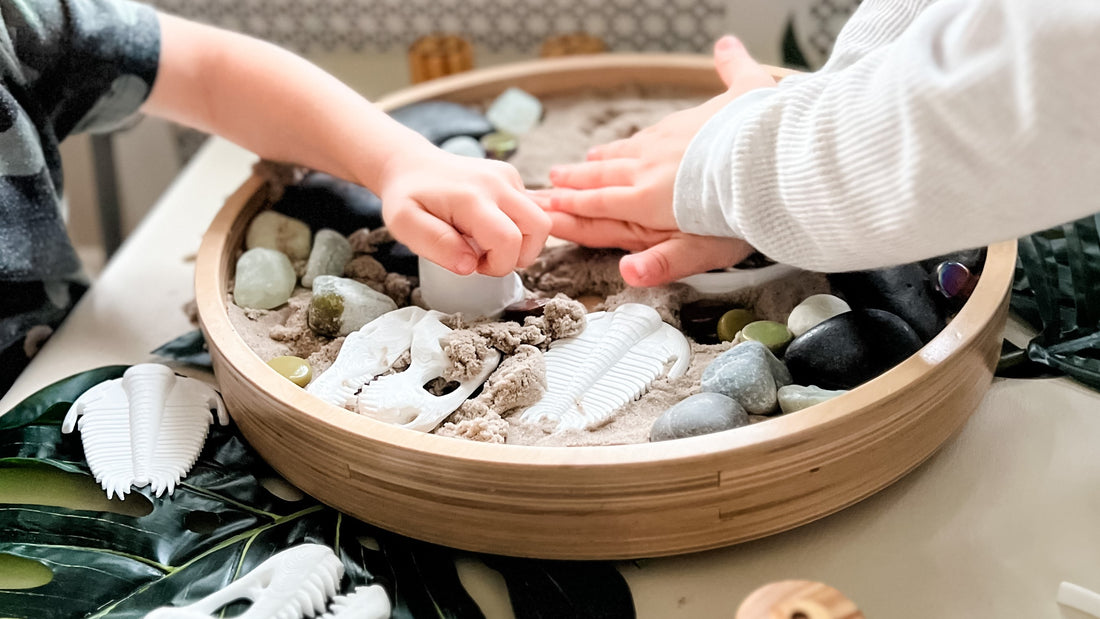In a world increasingly dominated by technology, the importance of screen-free play in early childhood development cannot be overstated. As parents, caregivers, and educators, we strive to provide our toddlers with the best opportunities for growth and learning. Engaging in screen-free play is not just a trend; it is a necessity for the holistic development of young children. By understanding its significance, we can better support our toddlers as they navigate both their physical and cognitive terrains.
How Screen-Time Affects Toddlers
The American Academy of Pediatrics recommends that children aged 2 to 5 years should spend no more than one hour each day on high-quality programming. While screen time can sometimes offer educational benefits, it can also pose risks if not monitored wisely. Excessive screen time is linked to various developmental issues in toddlers, such as:
- Delayed Language Skills: Screen time often reduces interactive communication opportunities, which are crucial for language development.
- Physical Health Concerns: Too much time spent in front of a screen can lead to obesity and other health problems in young children.
- Impaired Social Skills: One-on-one playtime with peers is essential for budding social skills; screens can detract from that interaction.
- Decreased Attention Span: Fast-paced media content can make it difficult for toddlers to focus and engage in slower-paced, meaningful activities.
The Power of Screen-Free Play
Screen-free play provides toddlers with a wealth of opportunities for growth, exploration, and learning. Encouraging them to participate in this type of play fosters not just creativity but lays a foundational road map for their emotional, social, and cognitive skills. Here are some key reasons why screen-free play should be prioritized:

Promotes Imagination and Creativity
Toddlers are natural creators. They have vivid imaginations and a fantastic ability to engage in pretend play. When they’re screen-free, they can invent their games, stories, and roles. This imaginative play is crucial for developing problem-solving skills and emotional health. Their creativity flourishes when they have the freedom to create without boundaries.
Enhances Physical Development
Physical play is essential for toddlers as it helps build gross and fine motor skills. Activities such as climbing, jumping, and manipulating toys improve coordination and balance. Screen-free play encourages movement and exploration, allowing toddlers to engage their bodies actively. From running in a park to building a fort with cushions, the physical activity associated with play is irreplaceable.
Strengthens Social Skills
Engagement in screen-free play promotes important social skills. When toddlers play together, they learn how to communicate, share, negotiate, and resolve conflicts—all vital components of emotional intelligence. Group activities like board games or outdoor playtime foster teamwork and friendship-building, intrinsically linked to their emotional well-being.
Types of Screen-Free Play Activities for Toddlers
Here are some engaging screen-free play activities that you can easily implement at home or during outings to foster learning and fun:

- Outdoor Play: Encourage your toddler to explore parks, gardens, and playgrounds. Simple activities such as treasure hunts or nature walks can engage their imagination while promoting physical health.

- Arts and Crafts: Provide art supplies—papers, colors, paints, and other craft materials—to help toddlers express their creativity. Simple projects can be a fun way to enhance fine motor skills.

- Building and Construction: Toys that allow for building—such as blocks—promote hand-eye coordination and spatial awareness. Encourage your toddler to create their unique structures.

- Role Play: Using dress-up costumes or puppets, help your toddler engage in imaginative play that reflects real-life scenarios, promoting empathy and understanding.

- Musical Activities: Singing, dancing, or playing with musical toys can significantly improve a toddler's rhythm and auditory skills while providing a joyful outlet for expression.
Screen-Free Play: The Foundation for Lifelong Skills
The impact of screen-free play extends well beyond childhood. The skills and attributes developed during this formative period lay the groundwork for additional learning and life experiences later on. Here’s how:
Critical Thinking and Problem Solving
When toddlers engage in screen-free play, they encounter challenges that require thought and creative solutions. Whether building a block tower that keeps falling down or figuring out how to share a toy, these experiences encourage critical thinking and problem-solving abilities that they will use throughout their lives.
Strengthens Emotional Resilience
Play allows toddlers to express their feelings and explore various emotions in a safe context. This self-expression aids them in understanding their emotions better, leading to stronger emotional regulation as they grow older. Navigating conflicts during play teaches them resilience—a vital quality in life.
Improves Language Skills
In the absence of screens, toddlers rely more on verbal communication, which aids in vocabulary development. Storytelling and role-playing activities provide excellent opportunities for language enhancement. Engaging with caregivers while playing fosters language skills that will be beneficial in more structured learning settings.

What Parents Can Do to Encourage Screen-Free Play
As parents, you hold the key to fostering a healthy environment for your toddler. Here are several actionable strategies to encourage screen-free play:
- Set Clear Boundaries: Limit screen time by creating specific rules around when and how screens can be used; this sets expectations for your toddler.
- Be a Role Model: Reduce your screen time around your toddler. Show them the joys of engaging in screen-free activities instead.
- Provide Diverse Play Options: Offer a variety of toys and materials that encourage constructive and imaginative play, ensuring that your toddler has access to different types of play experiences.
- Spend Quality Time Together: Participate in play with your toddler to strengthen your bond and encourage more imaginative exploration. Your involvement is essential for their emotional security.
- Promote Group Activities: Organize playdates or family gatherings that allow your toddler to interact with peers and adults alike, forming important social connections.
Building a Screen-Free Play Routine
Establishing a consistent routine helps toddlers adjust to screen-free play advantages. Here are some tips:
- Designate Play Time: Schedule regular periods throughout the week for screen-free activities. Consistency fosters anticipation and habit.
- Mix Activities: Keep things fresh by alternating different types of screen-free games or crafts throughout the week, appealing to your toddler’s mood and interests.
- Incorporate Learning: Frame your screen-free activities with educational goals. For instance, while playing with blocks, discuss colors, shapes, and counting.
The Bright Path Ahead
The journey to promote screen-free play among toddlers requires a blend of dedication, patience, and creativity. By understanding its importance and fostering a rich environment for play, we can bolster our toddlers' holistic development, ensuring they possess the skills needed for their future endeavors both socially and academically. As you embrace the joys of screen-free play, remember: the world is full of adventures waiting to be discovered, and your toddler is the explorer of their own story!


1件のコメント
Sakuya.in is one of best online toy shop for kids. You can buy toys for kids online at https://sakuya.in